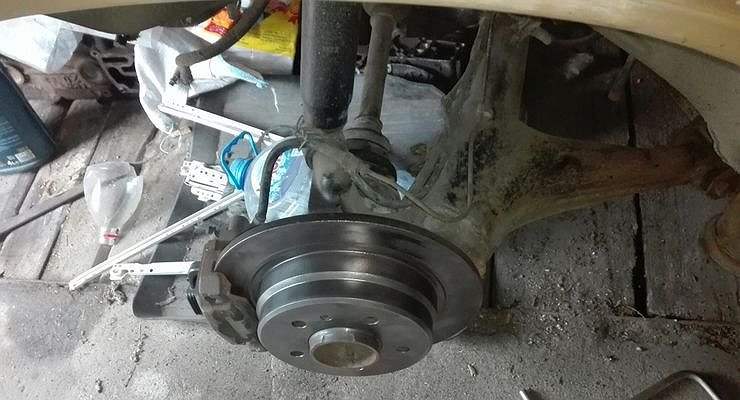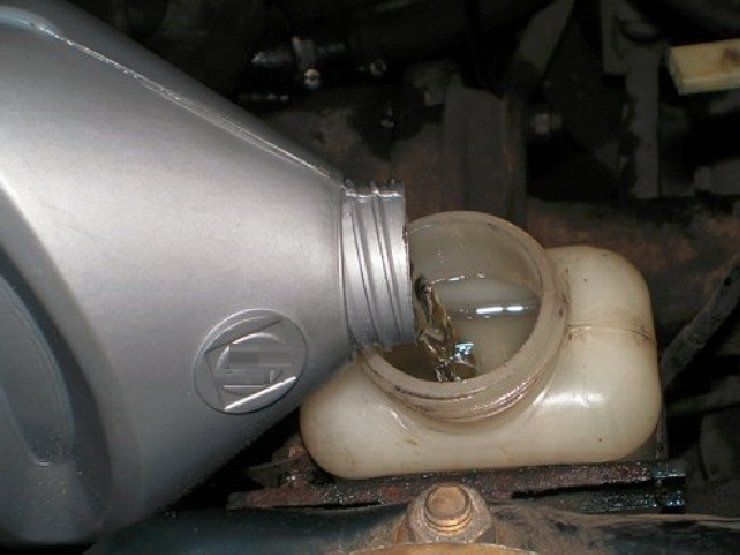What happens if you rarely change the brake fluid?
- October 17, 2022
- 0
We have already learned to change the oil in time and not to save on filters, to do maintenance and do not hesitate to periodically call in for
We have already learned to change the oil in time and not to save on filters, to do maintenance and do not hesitate to periodically call in for

The key to a long life for any mechanism is regular and complete maintenance. The same car can last for years, or maybe months, the difference is only in the owner and his approach to operation and service. Realizing that we won’t be seeing any new cars in the near future, all car owners are concerned about getting their cars “in good condition.” Services are clogged, lots of complex and lengthy repairs, bulkheads and overcooking. And all these monstrous investments, as a rule, began with trifles: here I did not change the oil, here “I was still traveling”, here I did not give a damn about recommendations.
A good example is brake fluid. It seems like the manual, which no one reads until a malfunction, says that replacement is needed every 30,000 km or two years. But our people are simple, since 30,000 didn’t show up on the dashboard, you can’t change it. Still like it! A cent story – a thousand rubles on a market day – begins to gain weight and turns into a major headache.
Meanwhile, it is worth understanding that the “brake” is hygroscopic, that is, it absorbs water. Over time, there is so much H2O in it that due to overheating, the most ordinary steam appears in the system, the “cocktail” boils. First of all, such processes affect the brake pedal: it becomes heavy, it is impossible to squeeze, and the stern of the car in front turns into a pier. Have you seen how much they charge for body parts now?
That seems to me to be sufficient reason for an immediate replacement. Sufficient, but not the last. Moisture in the system causes corrosion. And where would you think? That’s right, in the caliper pistons. One day they just jam and turn the whole mechanism into real estate.
At this point, the car owner realizes that there was a problem with the brakes, curses the reagents, buys guidebooks out of habit and goes to the service. Already there, on the elevator, it turns out that everything is perfectly fine with the brake guides. But the piston and cylinder are covered with rust and need a repair kit, which is already much more expensive. Yes, and finding it today is a quest.
All of this could have been easily avoided if the car owner had changed the brake fluid on time, or better yet, earlier. Preventive, so to speak. After all, “repair for the future” always costs several times cheaper than in the event of an event – the complete failure of one or another device. But for the majority of our “steersmen” such financial and automotive literacy is still worth learning. However, difficult times always lead to heightened perception and accelerated learning.

The key to a long life for any mechanism is regular and complete maintenance. The same car can last for years, or maybe months, the difference is only in the owner and his approach to operation and service. Realizing that we won’t be seeing any new cars in the near future, all car owners are concerned about getting their cars “in good condition.” Services are clogged, lots of complex and lengthy repairs, bulkheads and overcooking. And all these monstrous investments, as a rule, began with trifles: here I did not change the oil, here “I was still traveling”, here I did not give a damn about recommendations.
A good example is brake fluid. It seems like the manual, which no one reads until a malfunction, says that replacement is needed every 30,000 km or two years. But our people are simple, since 30,000 didn’t show up on the dashboard, you can’t change it. Still like it! A cent story – a thousand rubles on a market day – begins to gain weight and turns into a major headache.
Meanwhile, it is worth understanding that the “brake” is hygroscopic, that is, it absorbs water. Over time, there is so much H2O in it that due to overheating, the most ordinary steam appears in the system, the “cocktail” boils. First of all, such processes affect the brake pedal: it becomes heavy, it is impossible to squeeze, and the stern of the car in front turns into a pier. Have you seen how much they charge for body parts now?
That seems to me to be sufficient reason for an immediate replacement. Sufficient, but not the last. Moisture in the system causes corrosion. And where would you think? That’s right, in the caliper pistons. One day they just jam and turn the whole mechanism into real estate.
At this point, the car owner realizes that there was a problem with the brakes, curses the reagents, buys guidebooks out of habit and goes to the service. Already there, on the elevator, it turns out that everything is perfectly fine with the brake guides. But the piston and cylinder are covered with rust and need a repair kit, which is already much more expensive. Yes, and finding it today is a quest.
All of this could have been easily avoided if the car owner had changed the brake fluid on time, or better yet, earlier. Preventive, so to speak. After all, “repair for the future” always costs several times cheaper than in the event of an event – the complete failure of one or another device. But for the majority of our “steersmen” such financial and automotive literacy is still worth learning. However, difficult times always lead to heightened perception and accelerated learning.
Source: Avto Vzglyad
I’m Sandra Torres, a passionate journalist and content creator. My specialty lies in covering the latest gadgets, trends and tech news for Div Bracket. With over 5 years of experience as a professional writer, I have built up an impressive portfolio of published works that showcase my expertise in this field.